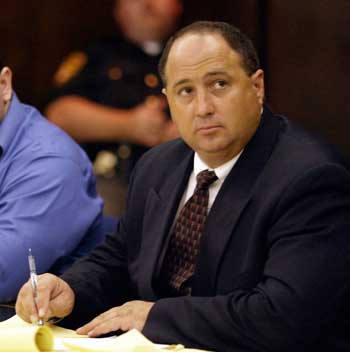
This situational conflict is especially acute for solo lawyers or for lawyers whose leads and clients come from within a relatively dense social network. A prime case on the point is that of Mr. Cicero who is struggling before the Ohio Supreme Court to avoid a recommended six-month suspension of his law license, as of September 11, 2012. Since the case is still ongoing, it is difficult to assess the outcome, but it is sufficient to illustrate the kind of problem that a lawyer working within dense social networks can land himself in.
Don't act like a whistleblower if you are not in the shoes of one and your actions unprotected by law
In the instant case, it was attorney Cicero's emails to the coach of the Ohio State University Football players, Jim Tressel that caused the incident. Emails of warning sent by Cicero to Tressel about the players of the football team selling memorabilia to a tattoo parlor owner, who also moonlighted as a marijuana dealer brought the scandal to fore.
The court's disciplinary arm had previously found that Cicero had violated the confidences of would-be-client Edward Rife, when he wrote emails to former OSU football coach Tressel warning him about the players selling OSU gear to Rife. They recommended a six-month suspension of law license, over which Cicero is now appealing before the Supreme Court, but his chances seem weak.
The Board of Commissioners on Grievances and Discipline held that Cicero had violated attorney-client privilege and gave testimony that was “disingenuous and not credible.” While Cicero tried to establish that he learned of the memorabilia sales before he even met Rife, and therefore did not breach attorney-client privilege, the prosecution pointed out that in an April 2010 email to Tressel, which was after Cicero met Rife, Cicero had mentioned a raid by federal authorities on Rife's home, and how the federal authorities overlooked seizing $70,000 in cash.
Though Cicero argued at court that his knowledge about Rife and the selling of OUS memorabilia by football team players was general knowledge, the court or disciplinary authorities did not buy his arguments. When asked by the court how Cicero learned of the activities of the football players and Edward Rife, which he warned Tressel about, Cicero's lawyer told the Ohio Supreme Court: “He learned it on the streets.” Cicero also submitted that he had learned of the transactions from a long-time client who knew Rife. But the court did not buy the arguments.
Justice Maureen O'Connor asked, “Generally known by whom?” and Justice Yvette McGee Brown, denounced Cicero's defense claims as a “red herring.” Reasonably, the justices were skeptical that the public in the streets of Columbus generally knew what was going on at Edward Rife's tattoo parlor.
Such defenses were too weak to cover up Cicero's breach of confidence as the prosecution pointed out. If the knowledge claimed by Cicero was ‘general knowledge' then what was the need to warn Tressel?
Confidentiality is a cornerstone of law practice, but in this case, it seems, Cicero lacked the ability to overcome the temptation of proving to Tressel that he was ‘'street-wise” and received news from the “grapevine,” a common ploy of errant lawyers intent on grooming clients, not upon their expertise, but upon their “connections.”




